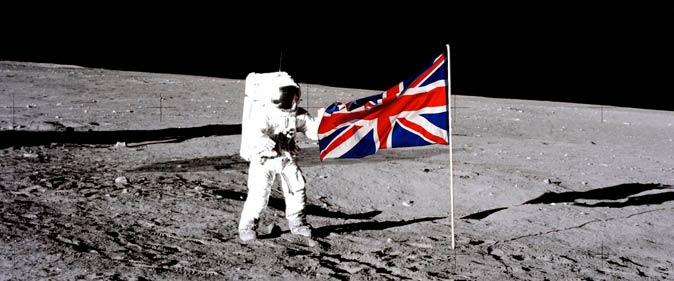“It is important that Industrial Strategy extends to university-based space Research and Development projects”
In the latest article in our series of Britain’s Industrial Strategy, published in collaboration with the University of Birmingham, we feature the assessment of Chloe Billing, Research Fellow at the City Region Economic and Development Institute, and Dr Simon Bennett, Business Director of the Quantum Technology Hub for Sensors and Metrology:
See also What is the UK’s Industrial Strategy?
Britain’s Industrial Strategy: Lessons from the Food Industry
The space sector forms a key part of the Government’s Industrial Strategy to spread economic growth across the UK. This reflects the growing importance of satellite-enabled communications and applications to UK businesses and the day-to-day life of its citizens. Smart cities, energy infrastructure, emergency response, food security, environmental monitoring, weather services, and road/rail/maritime traffic management all rely on space based satellite services.
The growing dependency on space-based services by the government and the public means that any disruption to the production of satellite technology could potentially pose significant security, societal, and economic risks. To help mitigate these risks, the government has committed to supporting the development of UK space manufacturing and testing facilities through its Industrial Strategy Challenge Fund.
It is important that this commitment extends to university-based space Research and Development projects. At the moment, the commercialisation of leading research from UK universities is lagging behind the opportunities for its exploitation. For instance, whilst we have world-class research universities, not one features in the Top 10 list compiled by Reuters covering innovation and commercialization. To improve this, the Satellite Applications Catapult has suggested dedicating R&D funding to de-risk early stage collaborations between space/non-space companies and universities.
Quantum Technology Hub and SERENE
The Quantum Technology Hub for Sensors and Metrology, led by physicists at the University of Birmingham, have a stream of exciting space-based R&D project ideas which would benefit from the type of funding the Sat Aps Catapult have described. For example, they are currently developing a Quantum Gravity Sensor for ground based geo-survey applications but, with future funding, it could be configured as a satellite payload for earth observation. This sensor technology can measure the subtle changes in the strength of the gravitational fields generated by any object, providing a powerful tool to map underground geophysical changes. The coverage area of the Earth that a satellite can “see” would enable these underground maps to be produced for entire regions, cities and even countries. These maps could then be used to monitor ground water tables and river deltas, which is vital data for sustainability, climate modelling, and flood management. They could potentially also be used in seismic mapping, helping predict natural disasters like earthquakes or volcanic eruptions.
The ongoing research by the Space Environment and Radio Engineering group in the School of Engineering complements these space related activities at the Quantum Technology Hub. SERENE are researching ways to measure, model and mitigate the effects of the upper atmosphere on space systems. These effects can include degradation in performance of radio systems such as space based radar, satellite communications and satellite navigation; and increase drag on satellites that can limit our ability to predict orbits and prevent collisions.
Addressing the Skills Gap
The University of Birmingham is also launching an undergraduate degree programme in Aerospace Engineering, which will further enhance the profile of space activity at Birmingham and contribute to addressing the skills gaps that the UK space sector is currently facing. Furthermore, researchers at City-REDI at the Birmingham Business School are working to support the development of these space activities across campus, researching the commercialisation opportunities for the different technologies and recognising that local economic growth is fuelled by the high value, well-paid jobs that university-led innovation could potentially create.

